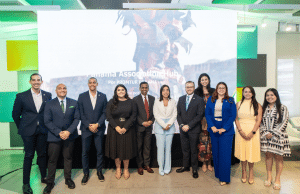Today’s role of a Convention Bureau for a city or a region is quite different to previous times. And this difference reflects the changes on a global level. Today Convention Bureaus are part of the Meetings Industry, in a larger sense belonging to the Knowledge Industry.
Convention Bureaus have to be today and in the future the turning point for the customer, the client, the meeting planner and have to make sure that the suppliers of the city or region are behind the Convention Bureau. It is clear that the one-stop solution for a destination can only be the Convention Bureau, under the condition that the Bureau is working professionally, is accepted by the suppliers and official institutions and is focussing primarily on the client needs. The problem arises quite often for Bureaus with membership, as there is a conflict per se between the focus on the client needs and to serve the members. However the key target for a Convention Bureau has to be to bring business to the destination.
Not to forget that from the touristic point of view the destination needs to have good branding, even though nowadays touristic aspects are less and less important for delegates.
Convention Bureaus help promote universities, research and support international networks representatives from universities, research institutes etc. and help them build up new networks and that should also be the case in SE Europe. Knowledge created in a destination and/or region is also an export item and export happens quite often within meetings and congresses.
Convention Bureaus have to be aware of this aspect and should try to convince local representatives to maximize the knowledge gained and the research done. Meetings and Congresses are an excellent platform to liaise on a regional, European and international level and by that advance global research and knowledge.
Convention Bureaus have to perform quite extensive basic research and have to find out who are the individuals at universities, at local national associations with international connections. Those people have to be identified as potential hosts for European or international meetings. Once identified, it is the role of the Convention Bureau to convince those people to move into a bidding process, assuming that the infrastructure in the respective destination is adequate for the meeting. The guidance and the help to these people is a key factor for success, sometimes it takes 10–12 years from the first contact until the final win of such a bid. And the Convention Bureau has to accompany this individual over the period.
This brings in another aspect of the work of a Convention Bureau: stability and continuity.
Still, looking around Europe, there are not many Bureaus where the key staff is with the Bureau for more than ten years. But for the success of a Bureau and for the destination representation by the Convention Bureau, it is absolutely imperative that the work environment for the staff allows longstanding staff members. It is not just an appropriate salary. It’s more the environment policies, which should enable the Convention Bureau and its staff to work independently and focus on the one and only target a Bureau has to have: bringing business – meetings, conferences – to the destination. To the client destination relationship is key for the success and this relationship cannot be built on a staff, changing every three years. That is probably the key reason making the difference between very successful Convention Bureaus in Europe and the others.
In SE Europe there’s sometimes only one person at a destination responsible for the Meeting Industry, but just this one person, with a clear focus and a clear responsibility, can be beneficial to a destination (as long as the infrastructure works).
There is a clear opportunity for the whole region to become more known in the world of government and association meetings but the service level and the infrastructure must be adequate.
And never forget: not every destination has to be a meetings destination, there is only one option, if you move into the meetings industry, the support from all levels within a destination must be evident – on the other hand if that is not given, better to abstain from this market segment as half hearted solutions are neither good for the destination or off course for the potential clients.
Commitment is key and professionalism has to follow.













